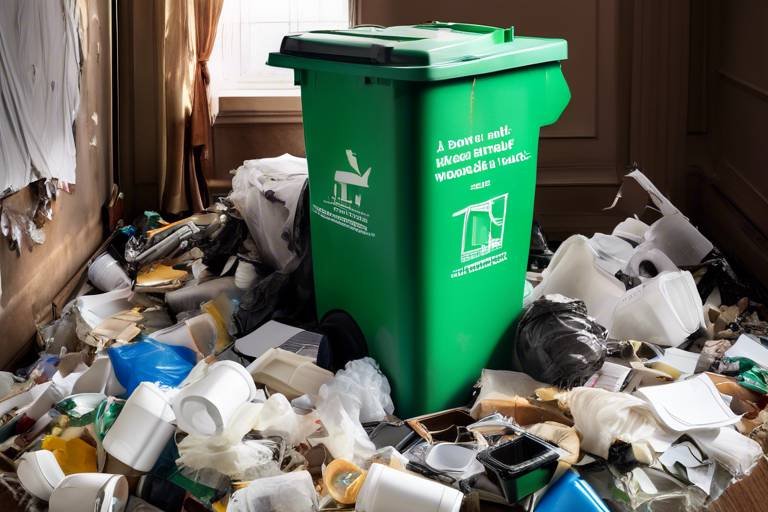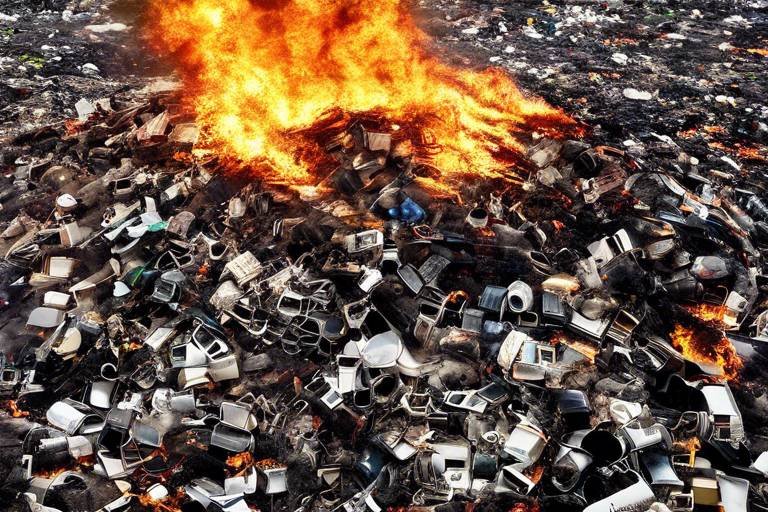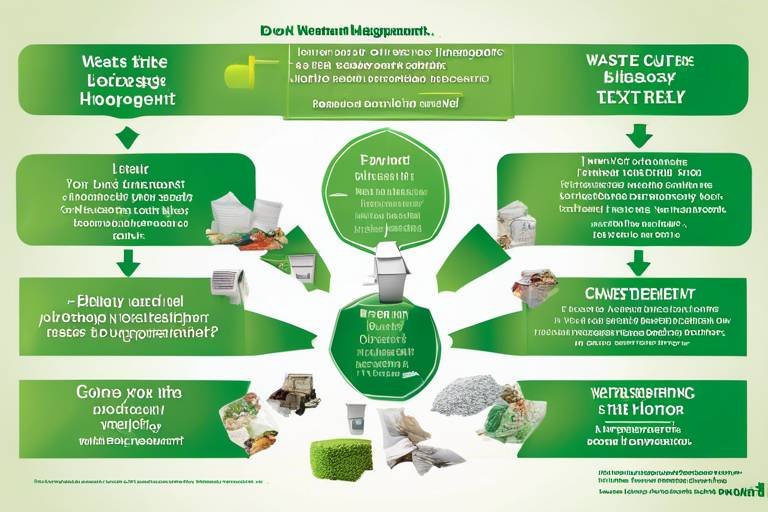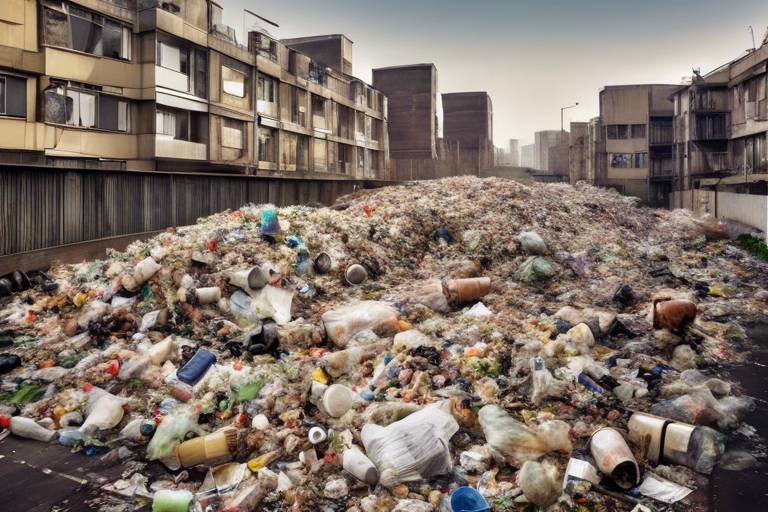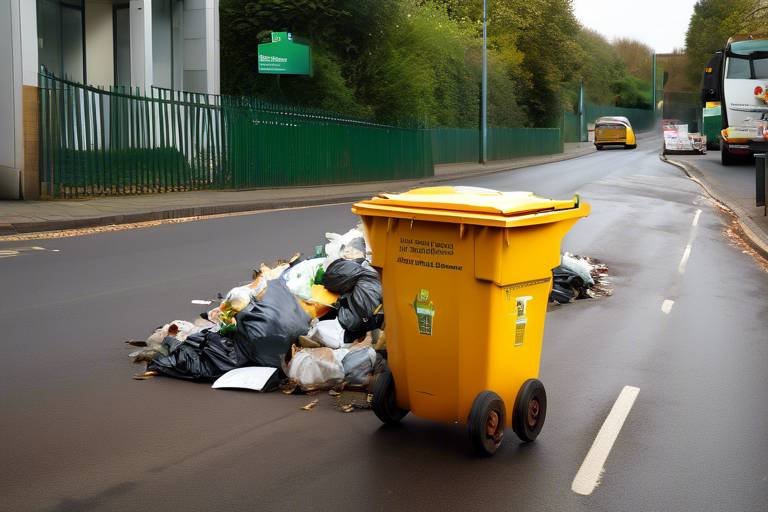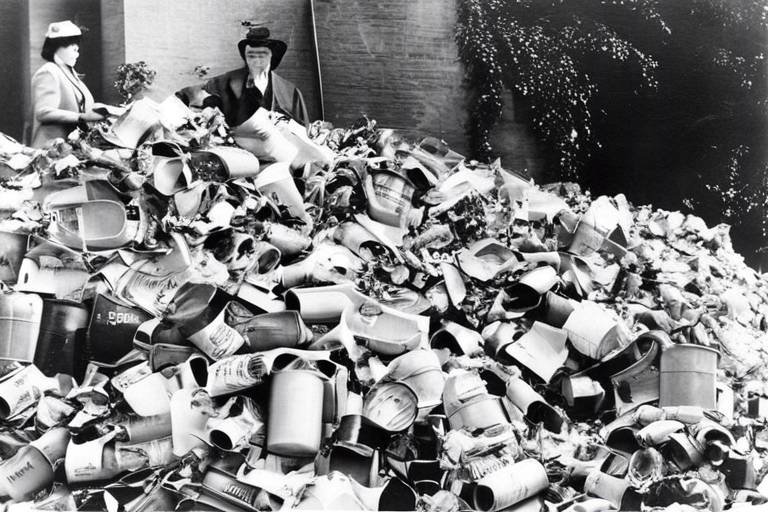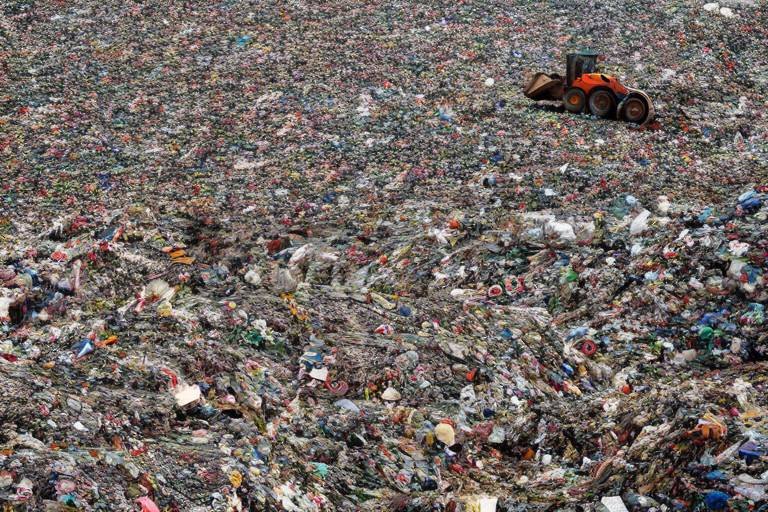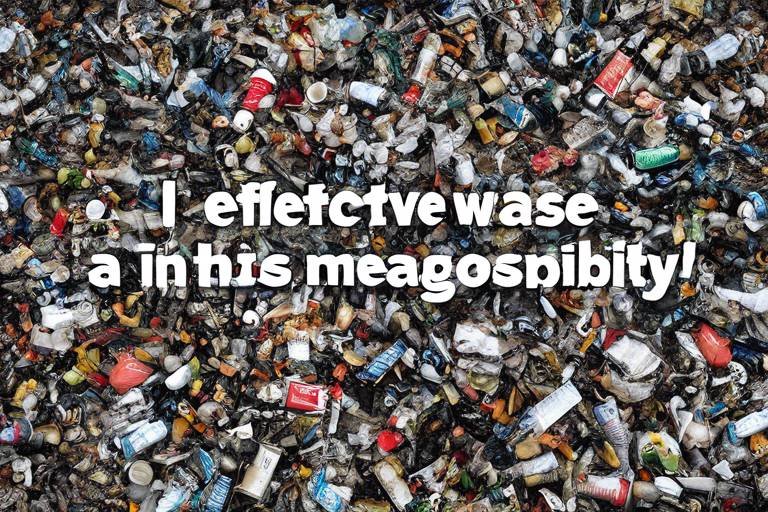Why Is it Important to Recycle Glass Bottles?
Recycling glass bottles is more than just a good habit; it's a vital part of creating a sustainable future. You might be wondering, "Why should I care about recycling glass?" Well, let me tell you, the benefits are as clear as the glass itself! By recycling glass, we can drastically reduce the amount of waste that ends up in landfills, conserve precious natural resources, and significantly lower greenhouse gas emissions. It's like giving Mother Earth a big hug and saying, "I've got your back!"
When you toss a glass bottle into the recycling bin instead of the trash, you're not just cleaning up your space; you're participating in a larger movement towards sustainability. Did you know that glass can be recycled endlessly without losing quality? That's right! This means that every time you recycle a glass bottle, you're helping to create new products while saving energy and resources. It's a cycle that continues to benefit our planet.
But let's break it down a bit further. Recycling glass bottles has a plethora of environmental benefits:
- Reduces Landfill Waste: Glass takes thousands of years to decompose. Recycling it means less waste in our landfills.
- Conserves Natural Resources: Recycling glass reduces the need for raw materials like sand, soda ash, and limestone.
- Lowers Greenhouse Gas Emissions: The energy saved from recycling glass is substantial, leading to fewer emissions.
Understanding these environmental benefits helps us grasp the significance of recycling in combating pressing environmental issues. It's not just about keeping our neighborhoods clean; it's about ensuring a healthier planet for future generations. So, the next time you finish that refreshing drink, remember that recycling your glass bottle is a small action that can lead to monumental change.
Here are some common questions regarding glass recycling:
- What types of glass can be recycled? Most glass bottles and jars are recyclable, but it's important to check local guidelines.
- Do I need to clean my glass bottles before recycling? Yes, rinsing out bottles helps reduce contamination in the recycling stream.
- How does glass recycling benefit the economy? Recycling glass creates jobs and reduces waste management costs for communities.
In conclusion, recycling glass bottles is not just a trend; it's an essential practice that benefits our environment, economy, and community. So let's make it a part of our daily routine!

Environmental Benefits of Glass Recycling
Recycling glass is not just a trendy thing to do; it's a vital practice that makes a significant difference in our environment. When we recycle glass bottles, we are taking a proactive step toward reducing landfill waste. Did you know that glass can take over a million years to decompose in a landfill? That's a staggering thought! By recycling, we can keep these bottles out of our precious landfills and instead turn them into new products. This not only conserves space but also minimizes the need for new raw materials.
Another compelling reason to recycle glass is its ability to conserve natural resources. The process of making new glass from recycled materials requires less energy compared to producing glass from raw materials. In fact, recycling glass can save up to 30% of the energy needed to create new glass. This energy conservation translates into lower greenhouse gas emissions, which is crucial in our fight against climate change. Think of it this way: every time you recycle a glass bottle, you’re not just saving energy; you’re also helping to reduce the harmful emissions that contribute to global warming.
Furthermore, recycling glass helps to lower greenhouse gas emissions. The production of glass from raw materials is energy-intensive and releases a significant amount of carbon dioxide into the atmosphere. By recycling, we can reduce the demand for new glass production, which in turn reduces the associated emissions. To illustrate this, consider the following table that highlights the environmental impact of recycling versus not recycling glass:
| Aspect | Recycling Glass | Not Recycling Glass |
|---|---|---|
| Landfill Waste | Reduced significantly | Increased |
| Energy Use | 30% less energy | Higher energy consumption |
| Greenhouse Gas Emissions | Lower emissions | Higher emissions |
In addition to these benefits, recycling glass also promotes sustainable practices that can inspire others to follow suit. When communities engage in glass recycling programs, they not only contribute to a cleaner environment but also foster a culture of sustainability. This ripple effect can lead to increased awareness and participation in other recycling initiatives, creating a more environmentally conscious society.
In conclusion, the environmental benefits of recycling glass bottles are profound. By reducing landfill waste, conserving natural resources, and lowering greenhouse gas emissions, we can make a tangible impact on our planet. It’s a simple yet powerful act that each of us can participate in. So, the next time you finish a drink, remember that your decision to recycle that glass bottle is a step toward a healthier, more sustainable world.
Q: How many times can glass be recycled?
A: Glass can be recycled indefinitely without losing quality or purity, making it one of the most sustainable materials available.
Q: What happens to the glass after it is recycled?
A: After collection, glass is cleaned, crushed, and melted down to create new glass products, such as bottles or jars.
Q: Is there a difference between recycling and reusing glass?
A: Yes, recycling involves processing used glass into new products, while reusing means repurposing it for the same or different use without processing.

Economic Impact of Glass Recycling
The economic impact of glass recycling is profound and multifaceted. It not only contributes to the **local economy** but also plays a significant role in the global market. By recycling glass, we are not just reducing waste; we are creating a sustainable economic model that benefits everyone involved. Think of it as a **circular economy** where materials are reused and repurposed, leading to a more efficient use of resources.
One of the most notable economic benefits of glass recycling is **job creation**. The recycling industry is a vibrant sector that offers a variety of employment opportunities. From the collection of recyclable materials to the processing and manufacturing of new glass products, the glass recycling industry employs thousands of people. In fact, according to the **Environmental Protection Agency (EPA)**, every job in the recycling sector creates an average of 1.17 additional jobs in the manufacturing and reuse industries. This ripple effect demonstrates how recycling can bolster local economies.
Furthermore, the glass recycling process is less resource-intensive compared to producing new glass from raw materials. It requires **less energy**, which translates into lower operational costs for manufacturers. This cost-effectiveness can lead to reduced prices for consumers and increased profits for businesses, creating a win-win scenario. For example, recycled glass uses about **30% less energy** than new glass production. This is not just an environmental benefit; it also makes economic sense.
| Aspect | Impact |
|---|---|
| Job Creation | 1.17 additional jobs for every recycling job |
| Energy Savings | 30% less energy used in recycled glass production |
| Cost Savings | Lower operational costs for manufacturers |
Moreover, municipalities can save substantial amounts of money through effective glass recycling programs. By diverting glass from landfills, cities can reduce their waste management costs significantly. When communities invest in recycling infrastructure, they also enhance their **public services**. The money saved can be redirected towards essential services such as education, healthcare, and public safety. This creates a more sustainable community where resources are allocated efficiently.
Lastly, the **global market** for recycled glass is expanding. As more countries recognize the importance of sustainability, the demand for recycled materials is on the rise. This trend not only supports local economies but also positions them favorably in the global marketplace. Companies that prioritize recycled materials often gain a competitive edge, attracting environmentally conscious consumers who prefer sustainable products. In this way, glass recycling is not just an environmental necessity; it is also a savvy business strategy.
In conclusion, the economic impact of glass recycling is significant and far-reaching. From job creation and energy savings to cost reductions for municipalities and a booming global market, the benefits are clear. As consumers, we have the power to influence this industry through our recycling habits, and by doing so, we contribute to a healthier economy and a healthier planet.
- What are the main benefits of glass recycling? Glass recycling reduces landfill waste, conserves natural resources, saves energy, and creates jobs.
- How does glass recycling impact local economies? It generates employment opportunities and saves municipalities money on waste management.
- Can recycling glass really make a difference? Absolutely! Every bottle recycled contributes to a more sustainable economy and environment.

Job Creation in the Recycling Sector
When you think about recycling glass, you might not immediately consider the job opportunities it creates. However, the recycling sector is a powerhouse of employment, offering a wide array of jobs that span from the collection of recyclable materials to the intricate processes of sorting and processing glass. In fact, the glass recycling industry alone employs thousands of people, contributing significantly to local and national economies. Imagine a bustling center where workers are diligently sorting through materials, ensuring that every piece of glass is correctly processed. This is not just a job; it’s a vital role in creating a sustainable future.
One of the most exciting aspects of job creation in the recycling sector is the variety of positions available. From truck drivers who collect glass from curbside pickups to technicians who operate advanced machinery that crushes and melts the glass, there’s a role for everyone. Additionally, the industry often requires skilled labor, which means that many jobs come with opportunities for advancement and specialization. For example, workers may start in entry-level positions but can quickly move up to supervisory or managerial roles as they gain experience and training.
Furthermore, the recycling industry is not just about immediate job creation; it also has a ripple effect on the economy. As more glass is recycled, demand for recycling services increases, leading to the creation of new businesses focused on collection, processing, and distribution. These businesses often require additional staff, thereby multiplying job opportunities. According to recent studies, for every job created in the recycling sector, approximately 1.17 jobs are created in related industries. This means that investing in glass recycling can lead to a significant boost in overall employment rates.
Moreover, many recycling programs include training initiatives aimed at enhancing the skills of workers. These programs are crucial for developing a knowledgeable workforce that can adapt to the ever-evolving technology used in recycling processes. For instance, workers can learn about new techniques in glass sorting or how to operate the latest recycling machinery. This not only benefits the employees but also increases the efficiency and effectiveness of recycling operations.
In summary, the job creation potential within the glass recycling sector is immense. It not only provides direct employment opportunities but also fosters a skilled workforce and stimulates economic growth. As we continue to prioritize recycling, we are not just saving the environment; we are also paving the way for a brighter economic future.

Local vs. Global Job Markets
When we talk about glass recycling, it’s fascinating to see how it creates a ripple effect in both local and global job markets. On a local level, recycling programs can lead to the creation of numerous jobs that are essential for the community. Think about it: every time a glass bottle is collected, sorted, and processed, there are people behind the scenes making it happen. These jobs range from collection drivers to plant workers, and even administrative roles that ensure everything runs smoothly. Local economies benefit immensely as these jobs provide income and stability, allowing families to thrive.
However, the impact of glass recycling doesn’t stop at the local level. It extends globally, influencing international markets and job opportunities. For instance, recycled glass can be shipped to various countries where it is repurposed into new products, creating a demand for skilled workers in those regions. This global market not only opens up job opportunities abroad but also strengthens international trade relations. It’s a classic case of how something as simple as recycling can have far-reaching effects.
To illustrate the differences between local and global job markets in the recycling sector, consider the following table:
| Aspect | Local Job Market | Global Job Market |
|---|---|---|
| Job Types | Collection, Sorting, Processing | Manufacturing, Exporting, Trade |
| Economic Impact | Boosts local economy, reduces unemployment | Enhances international trade, creates global partnerships |
| Skills Required | Basic operational skills, community engagement | Technical skills, international business acumen |
Moreover, the skills developed through local recycling initiatives can be transferable to global markets. For example, training programs that teach sorting techniques or machinery operation can equip workers with skills that are valuable not only in their hometowns but also in international contexts. This cross-pollination of skills helps create a workforce that is adaptable and ready to meet the demands of a changing job landscape.
In conclusion, the relationship between local and global job markets in the glass recycling industry is a beautiful example of how recycling can foster economic growth on multiple levels. By supporting local recycling efforts, we are not just helping our immediate community; we are contributing to a larger, interconnected global economy that thrives on sustainability and responsible resource management.

Skills Development Through Recycling Programs
When we talk about recycling, we often focus on the environmental benefits or the economic impact it has on our communities. However, one of the most underrated aspects of recycling, especially glass recycling, is its potential for skills development. Recycling programs are not just about collecting and processing materials; they also serve as a platform for education and training, helping individuals gain valuable skills that can enhance their employability and contribute to their personal growth.
Many recycling initiatives incorporate training programs designed to equip participants with essential skills. These programs can range from basic operational training in recycling facilities to more specialized workshops focusing on waste management techniques. For instance, individuals may learn about the intricacies of sorting different types of glass, understanding the recycling process, or even the logistics involved in transporting recyclable materials. This hands-on experience is invaluable, as it not only prepares them for jobs in the recycling industry but also instills a sense of responsibility towards environmental sustainability.
Moreover, these training programs often emphasize soft skills such as teamwork, communication, and problem-solving. Participants frequently work in groups, fostering collaboration and enhancing their ability to work effectively with others. This is crucial in today’s job market, where employers highly value candidates who can adapt to various team dynamics and contribute positively to workplace culture. Additionally, the problem-solving aspect of recycling—such as finding innovative ways to reduce waste or improve recycling efficiency—encourages creative thinking, which is a skill that transcends the recycling sector.
To illustrate the impact of recycling programs on skills development, consider the following table that outlines key skills gained through participation:
| Skill Type | Description |
|---|---|
| Technical Skills | Knowledge of sorting, processing, and managing recyclable materials. |
| Operational Skills | Understanding logistics and operations within recycling facilities. |
| Soft Skills | Teamwork, communication, and problem-solving abilities. |
| Environmental Awareness | Increased understanding of sustainability and waste management practices. |
In addition to the skills gained, recycling programs often provide a pathway to further education and employment. Many participants find that their experience in these programs opens doors to advanced training opportunities or even full-time positions within the recycling industry. For instance, individuals may pursue certifications in waste management or environmental science, which can lead to higher-paying jobs and career advancement.
Ultimately, the skills developed through recycling programs contribute not only to individual growth but also to the overall health of the community. By fostering a workforce that is educated about recycling and sustainability, we are paving the way for a more environmentally conscious society. This ripple effect can lead to greater community engagement in recycling efforts, creating a culture that values and prioritizes sustainability.

Cost Savings for Communities
Recycling glass is not just an environmentally friendly choice; it also brings substantial cost savings to communities. When municipalities invest in glass recycling programs, they can drastically reduce the amount of waste sent to landfills. This reduction translates into lower landfill fees and operational costs for waste management services. Imagine a community that recycles a significant portion of its glass waste; the savings can be reinvested into local services, infrastructure, or even community projects that enhance the quality of life for residents.
Furthermore, recycling glass leads to a decrease in the need for new raw materials, which can be costly to extract and process. By reusing existing materials, communities can save on the expenses associated with mining, transportation, and processing of new glass. This not only conserves resources but also reduces the community's overall carbon footprint. In fact, for every ton of glass recycled, it is estimated that communities can save up to $100 in disposal fees alone.
To illustrate these savings further, consider the following table that highlights the financial impact of glass recycling on municipal budgets:
| Item | Cost Without Recycling | Cost With Recycling |
|---|---|---|
| Landfill Fees (per ton) | $150 | $50 |
| Raw Material Costs (per ton) | $200 | $0 (using recycled glass) |
| Transportation Costs | $75 | $25 |
| Total Savings | $425 | $75 |
As shown in the table, the financial benefits of recycling glass are profound. By reducing landfill fees and eliminating raw material costs, communities can redirect funds to essential services such as education, public safety, and infrastructure improvements. Moreover, the economic ripple effect of these savings can lead to enhanced community development and a more sustainable local economy.
Additionally, communities that prioritize glass recycling often experience increased participation in other recycling initiatives. When residents see tangible benefits from recycling programs, they are more likely to engage in responsible waste management practices. This creates a culture of sustainability that not only saves money but also fosters community pride and responsibility.
In conclusion, the cost savings associated with glass recycling are significant and multifaceted. From reducing landfill expenses to conserving resources, the financial implications of responsible recycling practices can profoundly impact community budgets and overall quality of life. So, the next time you toss a glass bottle in the recycling bin, remember that you’re not just doing your part for the environment; you’re also helping your community save money and thrive.
- What types of glass can be recycled? Most glass bottles and jars are recyclable, but it's essential to check local guidelines as some facilities may not accept colored glass.
- How does recycling glass help the environment? Recycling glass reduces landfill waste, conserves natural resources, and lowers greenhouse gas emissions.
- Can recycling glass really save my community money? Yes! By reducing landfill fees and eliminating the cost of raw materials, recycling glass can lead to significant savings for municipalities.
- What can I do to help improve glass recycling rates? Educate yourself and others about proper recycling practices, participate in local recycling programs, and advocate for community initiatives that promote recycling.

The Role of Consumers in Glass Recycling
When it comes to glass recycling, the role of consumers cannot be overstated. You might be wondering, "What can I really do to make a difference?" Well, let me tell you that every single action counts! Whether it's a simple decision to toss that empty glass bottle into the recycling bin instead of the trash or actively participating in community recycling programs, consumers are the backbone of the recycling system. It’s like being part of a relay race; each person’s contribution is vital to crossing the finish line for a sustainable future.
First off, understanding the importance of proper recycling is crucial. Many people think that just throwing a glass bottle into the recycling bin is enough, but there’s more to it. Glass must be clean and free of contaminants to be effectively recycled. When we don’t take the time to rinse out our bottles, we risk contaminating entire batches of recyclable materials, which can lead to them being sent straight to the landfill. So, the next time you finish a drink, remember that a quick rinse can go a long way!
Moreover, consumers can also promote glass recycling by engaging in local initiatives. Many communities run programs aimed at increasing recycling rates, and your participation can significantly impact their success. For instance, attending local clean-up events or even just spreading the word about the importance of recycling can create a ripple effect. Imagine a neighborhood where everyone is on board with recycling! It not only boosts local morale but also fosters a sense of community responsibility.
Now, let’s talk about the potential for education and awareness. It’s essential for consumers to stay informed about what can and cannot be recycled. This is where community education programs come into play. Many municipalities offer workshops or informational sessions that help residents understand the recycling process better. By taking part in these programs, you not only enhance your own knowledge but also empower others to make informed choices. Think of it as a domino effect—one person learns, and then they share that knowledge with others, creating a chain reaction of awareness.
In addition, consumers can advocate for better recycling facilities and services in their areas. If you notice that your local recycling options are limited, don’t hesitate to voice your concerns to local authorities. You can even start a petition or join forces with like-minded individuals to push for improvements. After all, if we want to see change, we need to be the change!
To sum it up, the role of consumers in glass recycling is multifaceted and incredibly impactful. From making informed decisions about their own recycling habits to actively engaging in community initiatives and advocating for better services, consumers hold the power to drive significant change. So, the next time you reach for that glass bottle, remember that your actions matter. Together, we can create a cleaner, greener planet, one bottle at a time!
Q: How can I ensure my glass bottles are recycled properly?
A: Make sure to rinse out your bottles and remove any caps or labels before placing them in the recycling bin. This helps prevent contamination and ensures that your glass is processed correctly.
Q: What happens to glass bottles after they are recycled?
A: Once collected, glass bottles are sorted, cleaned, and crushed into cullet. This cullet is then melted down and formed into new glass products, reducing the need for raw materials.
Q: Are there any local programs that support glass recycling?
A: Many communities offer recycling programs or events. Check with your local waste management department or community center for information on recycling initiatives in your area.

Best Practices for Glass Recycling
When it comes to recycling glass bottles, adopting best practices can make a world of difference. It's not just about tossing your empty bottles into the recycling bin; it's about ensuring they are processed correctly and efficiently. First and foremost, make sure to clean your glass bottles before recycling. Residual food or drink can contaminate the recycling stream, rendering the glass unusable. A quick rinse can go a long way in making sure that your bottles are in the best condition for recycling.
Another important practice is to check local recycling guidelines. Not all communities recycle glass in the same way, and knowing the specific rules in your area can help you avoid common pitfalls. For example, some places require you to separate colored glass from clear glass, while others might accept all types mixed together. This is crucial because improper sorting can lead to increased costs for recycling facilities and may even result in your bottles being sent to a landfill instead.
Additionally, consider the type of glass you are recycling. Not all glass is created equal; items such as window glass, mirrors, and light bulbs often cannot be recycled in the same way as beverage bottles and jars. Understanding these differences can help you make informed decisions about what to recycle and how.
Furthermore, it’s essential to avoid breaking glass before placing it in the recycling bin. While it might seem like a good idea to crush your bottles to save space, broken glass can pose safety hazards to recycling workers and complicate the recycling process. Instead, store your bottles upright and separate from other recyclables when possible.
To further encourage responsible recycling, consider participating in or supporting community recycling programs. Many localities offer drop-off centers or special collection days for glass recycling, which can help increase participation rates and ensure that more glass is being recycled properly. Engaging with your community not only raises awareness but also fosters a culture of sustainability.
Lastly, educating others about the importance of glass recycling can have a ripple effect. Share your knowledge with friends and family, and encourage them to adopt these best practices as well. The more people who understand the benefits and methods of glass recycling, the greater the impact we can collectively make on our environment.
Q: Can I recycle colored glass bottles with clear glass?
A: It depends on your local recycling guidelines. Some places allow mixed glass, while others require separation.
Q: Do I need to remove the labels from glass bottles before recycling?
A: Generally, it's not necessary to remove labels, as they are usually burned off during the recycling process. However, check local guidelines for specifics.
Q: What should I do if I accidentally break a glass bottle?
A: Carefully clean up the broken pieces and dispose of them in a sturdy container. Do not place broken glass in your recycling bin.

Community Engagement and Awareness
When it comes to glass recycling, community engagement and awareness are absolutely crucial. Imagine a neighborhood where every resident is not just aware of the importance of recycling glass, but actively participates in it. This kind of collective effort can lead to a **dramatic increase** in recycling rates, reducing waste and benefiting the environment. But how do we foster this level of engagement? It starts with education and outreach programs that inform residents about the environmental and economic benefits of glass recycling.
One effective strategy is to host local events that emphasize the significance of recycling. For instance, organizing a community cleanup day can bring people together while simultaneously promoting responsible waste management. During these events, residents can learn about the recycling process, the types of glass that can be recycled, and the impact their efforts have on the environment. Providing **hands-on activities** or demonstrations can make the experience more engaging and memorable, encouraging participants to take the lessons learned back to their homes.
Additionally, leveraging social media platforms can amplify awareness. Community groups can share tips, success stories, and reminders about recycling glass. This digital engagement not only keeps the conversation going but also creates a sense of community around the shared goal of sustainability. For example, a simple post showcasing the amount of glass collected in a month can motivate others to join the cause. Here’s a simple breakdown of how social media can be utilized:
| Social Media Platform | Engagement Strategy | Potential Impact |
|---|---|---|
| Community Groups | Increased local participation | |
| Visual Campaigns | Enhanced awareness through imagery | |
| Quick Tips and Reminders | Instant updates and engagement |
Moreover, schools can play a pivotal role in fostering a culture of recycling among younger generations. Implementing educational programs that teach children about the importance of recycling glass can instill lifelong habits. Schools can organize competitions or challenges that encourage students to collect and recycle glass, turning it into a fun and rewarding activity. When kids see their parents and community members actively participating in recycling, they are more likely to adopt these behaviors themselves.
Lastly, partnerships with local businesses can enhance community efforts. Businesses can sponsor recycling initiatives, provide resources, or even offer incentives for customers who bring back glass bottles for recycling. This not only promotes responsible consumer behavior but also builds a community that values sustainability. For example, a local café might offer a discount to customers who bring their own reusable containers, thereby encouraging a culture of reusing and recycling.
In conclusion, community engagement and awareness are the backbone of successful glass recycling programs. By fostering a culture of responsibility and education, we can significantly increase recycling rates, reduce landfill waste, and contribute to a healthier planet. It’s not just about recycling; it’s about creating a movement where everyone plays a part in nurturing our environment for future generations.
- Why is glass recycling important? Glass recycling reduces landfill waste, conserves natural resources, and lowers greenhouse gas emissions.
- How can I participate in local recycling efforts? You can join community events, educate yourself and others, and follow local recycling guidelines.
- What types of glass can be recycled? Most clear, green, and brown glass containers can be recycled, but check local guidelines for specifics.
- How does recycling glass benefit the economy? Recycling glass creates jobs, reduces waste management costs, and can lead to economic growth.
Frequently Asked Questions
- Why should I recycle glass bottles?
Recycling glass bottles is crucial for reducing landfill waste, conserving natural resources, and lowering greenhouse gas emissions. By recycling, you help combat environmental issues and promote sustainability for future generations.
- What are the economic benefits of glass recycling?
The glass recycling industry not only reduces waste but also creates jobs and generates revenue. It contributes to economic growth by providing employment opportunities in collection, processing, and distribution, benefiting both local communities and the broader economy.
- How does glass recycling create jobs?
Glass recycling creates numerous job opportunities, from collection and sorting to processing and manufacturing. These jobs support local economies and can lead to community development, enhancing the overall quality of life.
- What are best practices for recycling glass bottles?
To recycle glass bottles effectively, rinse them out to remove any residue, remove caps and labels, and place them in designated recycling bins. Following local recycling guidelines ensures that your efforts contribute to efficient recycling processes.
- How can I get my community involved in glass recycling?
Engaging your community in glass recycling can be achieved through awareness campaigns, educational programs, and organizing local recycling events. Encourage your neighbors to participate by sharing information about the benefits of recycling and how to do it properly.
- Are there any costs associated with recycling glass?
While recycling glass is generally cost-effective, there may be initial setup costs for recycling programs. However, the long-term savings in waste management and environmental benefits far outweigh these costs, making it a worthwhile investment.
- What happens to glass bottles once they are recycled?
Once recycled, glass bottles are collected, sorted, cleaned, and crushed into cullet. This cullet can then be melted down and reformed into new glass products, significantly reducing the need for raw materials and energy consumption.



